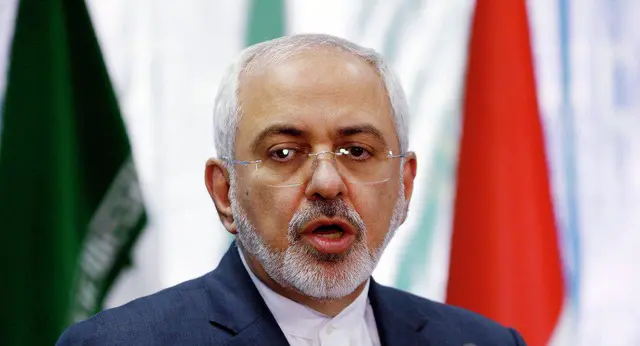Pakistani Prime Minister Nawaz Sharif has again rejected calls for his resignation as demanded by two opposition leaders who refused to call off their sit-in protests in Islamabad that have now entered its second month.
The protests have prolonged the political uncertainty in Pakistan at a time when the government is having difficulty in finding a solution to the country's worst energy crisis and faltering economy.
Imran Khan of Pakistan Tehrik-e-Insaf (PTI) party and religious scholar Dr. Tahir ul Qadri are demanding the immediate resignation of Prime Minister Sharif. Khan claimed that Sharif was able to gain power through the "rigged elections" held last year while Qadri has called for a revolution because the present regime cannot ensure justice to the masses.
The two opposition leaders, who had started "long-marches" on August 14 from the eastern city of Lahore, have camped in the capital city to press for the resignation of the Prime Minister.
"I cannot step down at the demand of only five thousand people, " Sharif said in his latest remarks on Wednesday.
"I have been elected by one hundred and eighty million people, and the whole parliament and political parties today stand united for the continuation of the system," he told an inauguration ceremony to mark discovery of oil and gas well in Attock District, some 65 km northwest of Islamabad.
Sharif's remarks coincided with Imran Khan's new announcement to observe Go Nawaz Go Day and a Day of Deliverance on Friday.
Khan's decision reflects his determination to continue with the sit-in protests.
Speaking to the participants of the sit-in late Tuesday, Khan declared that there will be no letup in the protest movement until the prime minister resigns. He also said he will spend the Muslim festival of "Eid-ul-Azha" at the venue of protest. Eid will be celebrated early next month.
Qadri, who runs a chain of religious schools across Pakistan and has many staunch supporters, has also ruled out an end to his sit-in.
Besides PM's resignation, he has also demanded for the registration of murder cases against the prime minister and some federal ministers over their alleged involvement in the killing of 14 of his supporters by the police in the eastern city of Lahore in June.
The police have registered the cases, however, Qadri has continued his protest to press for his so-called "revolution."
The political crisis has now deepened as both Khan and Qadri have suspended talks with the government after they alleged that hundreds of their supporters have been arrested in Islamabad and other parts of the country.
Government ministers said five of six demands of Imran Khan have been accepted, however, they have ruled out talks on Sharif's resignation.
In a televised address last month, Sharif said he has accepted Khan's demand for investigation into the alleged polls fraud by top court's judges.
However, Khan said he would not accept any judicial probe unless the Prime Minister resigns. Khan's other demands relate to electoral reforms.
Despite his failure to convince other opposition groups to join him, Khan insisted that Sharif should step down because, according to him, the prime minister was elected in a fraudulent manner.
After his call for a civil disobedience was ignored by most Pakistanis, Khan has now warned of a "civil war" and "bloodshed" if the prime minister refused to hold fresh elections.
The protests had relatively been peaceful, however, clashes left three demonstrators dead on Aug. 31and Sept. 1. Hundreds of protesters and policemen were injured when the police tried to stop the demonstrators from marching to the Prime Minister's residence.
The protests, staged just on the second year of Sharif's government, had a very negative impact on the economy and the country's overall situation.
The crisis devalued rupee by four percent over the past few weeks and an upward trend was seen in prices of some essential items.
Analysts said Pakistan, which faces serious challenges while its forces are currently fighting the Taliban in the latter's biggest sanctuary in North Waziristan, cannot afford a long political crisis.
The leaders of the protesters and the government should find out a political solution to the crisis by exercising flexibility and adopting the policy of "give-and-take," one analyst said.
A political jirga or council of opposition parties, which had earlier ended a deadlock between the government and the protesting leaders, should be convened to steer the country out of the current chaos, the analyst added.
 简体中文
简体中文

